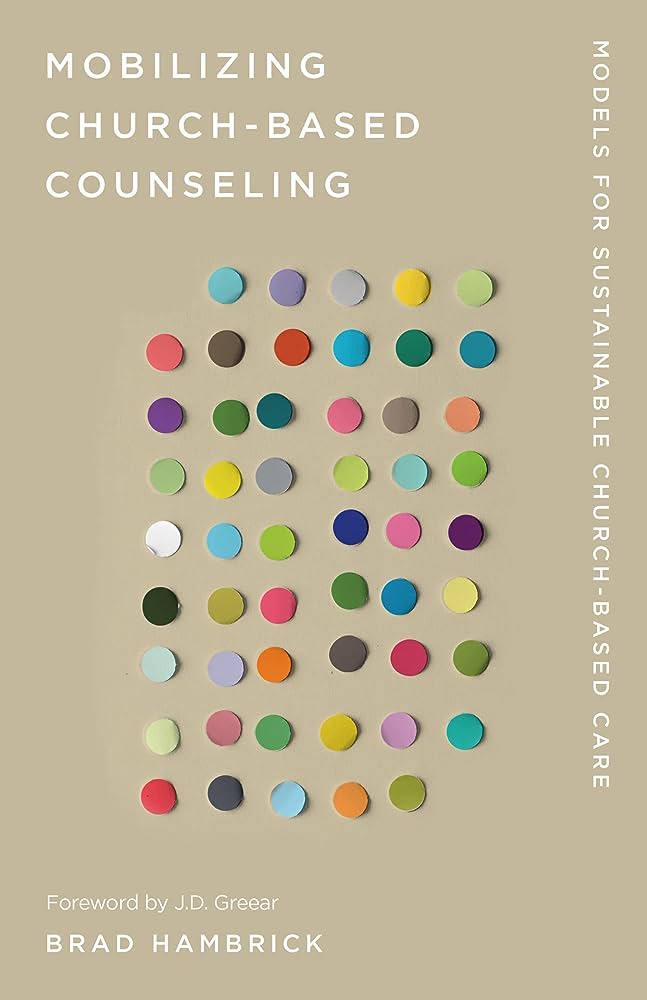Beyond the Book with Dr. Hambrick: “Mobilizing Church-Based Counseling”
Chad Burchett | October 11, 2023

In a world ravaged by sin and its effects, Christians know the Redeemer, Restorer, and resurrected King who has freed the Church from the power of sin and will one day free the Church from the presence of sin. However, in the waiting, Christians not only suffer their own sin but also the effects of others’ sin and the broken systems of life in this world. That is why church-based counseling is such a pressing need and a strategic ministry for helping Christians walk through sin and suffering toward wholeness and healing in Christ.
In his book “Mobilizing Church-Based Counseling,” Brad Hambrick, assistant professor of biblical counseling at Southeastern Seminary, offers a guide to starting a sustainable, volunteer-led counseling ministry in the local church. Drawing from his experience as a pastor, counselor, and professor, Hambrick presents two flexible models for developing church-based counseling programs that last.
In the following Q&A, Hambrick takes time to answer a few questions about this new book:
What is the book about?
“Mobilizing Church-Based Counseling,” equips churches to start lay-based counseling ministries that are relationally sustainable, church-compatible, and liability wise. Mobilizing re-envisions church-based counseling from trying to prepare lay leaders to serve as pseudo-professionals to a groups- and mentoring-based model of counseling.
Who is the target audience?
I wrote this book for two primary audiences. First, the pastoral leadership of a church that is preparing to launch a counseling ministry. Second, the lay person who will serve as a catalyst to oversee this ministry.
What motivated you to write the book?
In my role as the pastor of counseling at The Summit Church (Durham, NC), I’ve been part of developing G4 — a group-based counseling model — and GCM — a premarital mentoring model for over 10 years. As we’ve refined these ministries over that time, we felt like they were ready for implementation at other churches. This book is the fruit of that labor.
Why do so few churches have established counseling ministries?
When churches think “counseling,” they often envision a pseudo-professional model with lay people serving as general practitioners using intake forms and case notes while developing an individualized treatment plan for each counselee. That feels overwhelming — for the church and the potential lay leaders — and feels like a liability minefield.
Why is it important to create a counseling ministry that is relationally sustainable when involving lay leaders?
Lay counselors counsel in their “hobby time.” At most, they devote 2-3 hours per week to this ministry. If this ministry becomes too emotionally or relationally taxing a church will burn out its volunteers and — worse still — those receiving care will have their source of care removed when the volunteer steps back from the role. This is why its vital to create lay-counseling ministries that are relationally sustainable for its lay volunteers.
How does this book help readers to better serve the Church and fulfill the Great Commission?
The kind of ministries that this book equips a church to launch encourages lay leaders to view their ministry as an outreach to a specific people group. In this case, “people group” does not mean a cultural or linguistic group, but rather people of a shared struggle. The people each lay person is focusing on struggle with a particular area of need, and the lay person becomes a missionary to those struggling with addiction, depression, the aftermath of a divorce, grief, trauma, etc.
How has writing this book shaped you spiritually?
Like I said, this book has been a 10-year project; at least, the development of the ministry models this book equips churches to launch has been refined over that length of time. Seeing lay people get to use their hardships to encourage others is immensely satisfying and enriching.
Mobilizing Church-Based Counseling
Mobilizing Church-Based Counseling, the first book in the Church-Based Counseling series, provides a framework for guiding churches through the process of building a volunteer-led counseling ministry.
Many churches would like to start a counseling ministry, but they don’t know where to start. Mobilizing Church-Based Counseling offers direction to churches for creating a ministry built around lay-led counseling groups and mentoring.Based on proven models used in his own congregation, Brad Hambrick lays out a clear plan to launch a sustainable soul-care ministry that can be replicated in churches of any size.
Hambrick brings clarity to common points of confusion about church-based counseling and provides guidance on how to provide oversight for lay-led counseling groups and mentoring relationships.Your church can minister the hope of the gospel to the struggles of life—both sin and suffering—without incurring unwise liability or going beyond the capacity of your members.
October 16, 2023
Paperback, 176 pages
